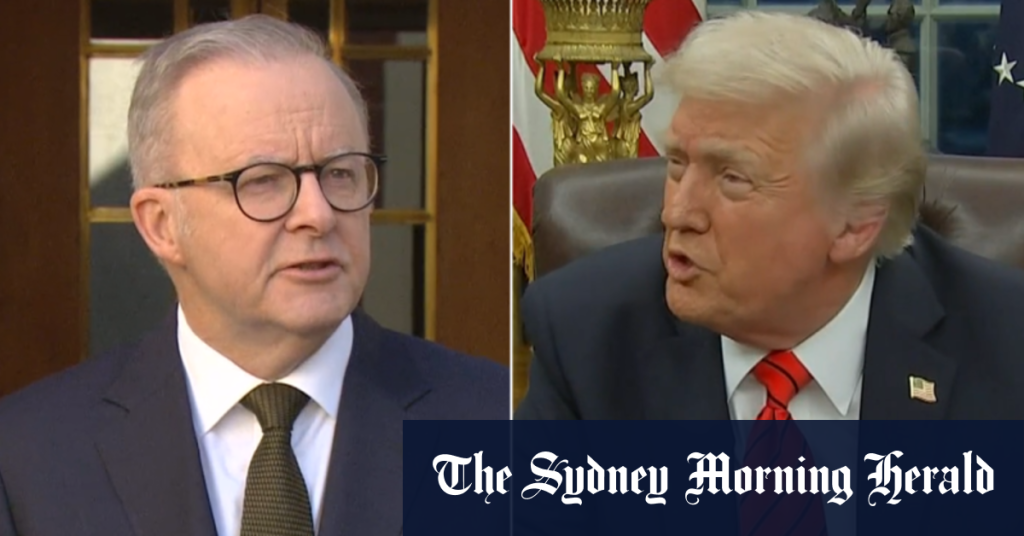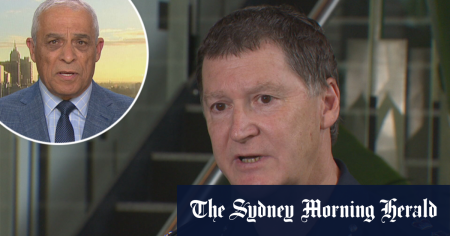Australian Exemption from US Tariffs Under Consideration Following Trump-Albanese Call
Introduction: A Glimmer of Hope for Bilateral Trade
In a development that has sparked optimism within Australian and American trade circles, the United States is contemplating exempting Australia from its steel and aluminum tariffs. This potential reprieve follows a telephone conversation between former U.S. President Donald Trump and Australian Prime Minister Anthony Albanese. The news, while still tentative, marks a significant step in the ongoing dialogue between the two nations regarding trade relations. This exemption, if granted, could alleviate some of the economic pressures Australian exporters have faced due to these tariffs, which were imposed by the Trump administration in 2018.
The Trump-Albanese Call: A New Chapter in Diplomacy
The telephone call between Trump and Albanese has been viewed as a constructive step toward strengthening U.S.-Australia relations. Although the exact details of their conversation remain undisclosed, sources close to the matter have indicated that trade issues, including the tariffs, were a focal point of their discussion. Both leaders have expressed a commitment to fostering a mutually beneficial trade relationship, and this potential exemption could be seen as a tangible outcome of their dialogue. The fact that Australia is being considered for such a exemption underscores the strong historical ties and strategic partnership between the two nations.
A Strategic Partnership: Beyond Tariffs
The U.S.-Australia alliance extends far beyond trade, encompassing defense, security, and cultural exchanges. The two nations have collaborated closely in various international forums and have been key partners in addressing global challenges. The consideration of a tariff exemption can be seen as an acknowledgment of Australia’s role as a steadfast ally of the United States. Furthermore, this gesture could serve as a foundation for broader economic cooperation, potentially paving the way for negotiations on other trade-related issues in the future.
Economic Implications: A Boost for Australian Exporters
Should the exemption be granted, Australian steel and aluminum exporters would likely experience significant relief. The U.S. market is a crucial destination for Australian exports, and the tariffs have imposed substantial financial burdens on these industries. By exempting Australia, the U.S. would be supporting the viability of Australian businesses, many of which are small and medium-sized enterprises. Moreover, this move could have a positive ripple effect on related industries, such as construction and manufacturing, which rely heavily on these materials. The exemption would also demonstrate the U.S. commitment to maintaining a level playing field for its allies in the global economy.
Political Considerations: A Calculated Move by the Trump Administration
The decision to consider Australia for a tariff exemption is not without political undertones. The Trump administration has been known for its unconventional approach to trade policy, often prioritizing bilateral deals over multilateral agreements. By considering an exemption for Australia, the administration may be signaling its intent to reward key allies while maintaining a tough stance on other trading partners. This move could also be interpreted as an effort to bolster support among Republican voters who value strong U.S. alliances, particularly as the 2024 presidential election approaches.
Conclusion: A Positive Signal for Future Relations
While the exemption is still under consideration, the mere fact that it is being contemplated is a positive signal for U.S.-Australia relations. Both nations stand to benefit from a more equitable trade arrangement, and this could serve as a precursor to further cooperation in other areas. As the two leaders continue their dialogue, there is hope that this gesture of goodwill could pave the way for a more comprehensive trade agreement in the future. For now, Australian exporters and businesses can take heart in the knowledge that their concerns are being heard at the highest levels of U.S. government, and a more favorable trade environment may soon be on the horizon.












